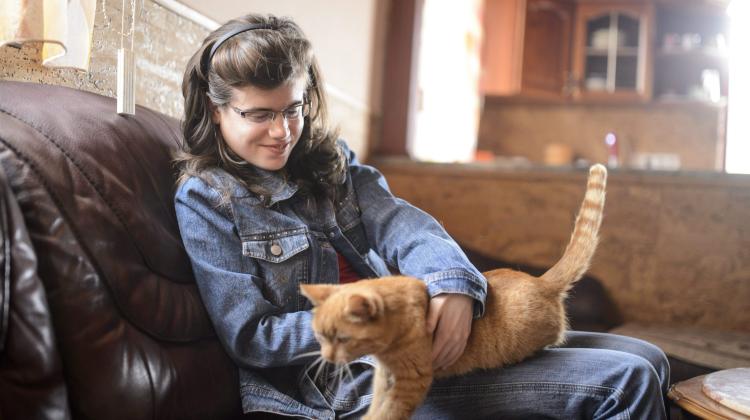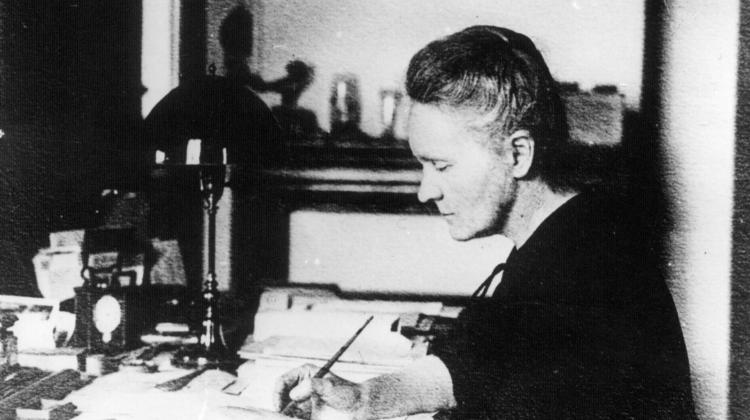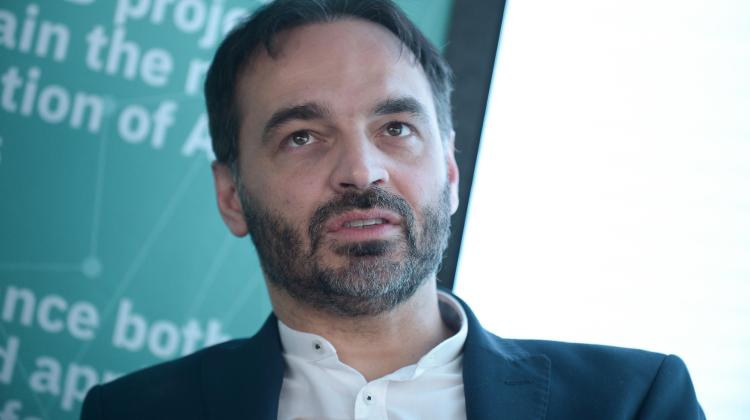Parents of children with autism spectrum disorders often stigmatise themselves, says psychologist
 Credit: PAP/EPA/MTI
Credit: PAP/EPA/MTI
Persistent feeling of being a terrible parent, a sense of alienation, 'stigma' - this is how parents of children with autism spectrum disorders often think of themselves. Anna Pyszkowska, a psychologist from the University of Silesia, adds that stereotypes strongly affect such self-stigma.
Pyszkowska works as a psychotherapist with families of children with autism spectrum disorders (ASD). Her scientific work concerns helping social minorities to cope with difficulties. She currently conducts research that combines theory with practice, in which she will examine the effectiveness and usefulness of a free psychological intervention for parents of people with ASD.
“I have yet to meet a pre-therapy parent of a child with ASD who thinks he or she is a good parent who can handle this child,” she says.
She notes that it results in part from self-stigma, that is from personally accepting negative public opinion as a truth and a persistent sense of alienation, being worse than others, 'stigmatised'', not accepted by the environment that - according to subjective assumptions - lives properly.
Stereotypes strongly affect self-stigma (of various social groups). “For example, there is a stereotype in society that people with autism spectrum disorders can be aggressive, they will always be dependent, they will not achieve anything in life. If you are a parent of such a person, you listen to it, read, observe and experience that people treat your family this way, and then you may develop self-stigma, a state where you will start to believe that it is so, even though you know that it is not,” says Pyszkowska.
“This is due to a psychological mechanism called cognitive fusion. The way it works is that a person becomes +fused to their thoughts+ and accepts them as truth. The aim of my project (and therapy in general) is to make this thinking more flexible. So when such a stereotypical thought appears in the patient's head, it does not have be destructive, if the patient understands this mechanism,” she adds.
In her opinion, the still lingering stereotype of a Polish mother does not help. Mothers ignore their needs and focus on the needs of their children, for example fearing what people will say about them if, for example, they go out on their own, without a child. “The same is true of the parents' right to rest. In Silesia, we have such a work ethic that you cannot sit down and rest until you've finished work. But the work of a demanding child's mother is never done, so it turns out that parents will never sit down and rest,” she says.
The psychologist's observations show that today more and more parents of children with ASD are looking for support and seek therapy. “There are a lot of needs, the system is underfunded, and more and more people admit that therapy is their last resort. Especially during the pandemic, parents who were stuck at home with their children noticed that they also had their own needs,” she says.
“Initially, in the 1940s, it was considered a disease, but now we know that it is a certain neurodiversity. It manifests itself in a number of ways, which is why it is a spectrum. It includes people who additionally have an intellectual disability, who are aggressive, dependent. But it also includes people who are extremely intelligent, people who do well, although they may have social problems,” she continues.
Pyszkowska's research project focuses on investigating the effectiveness and usefulness of a free psychological intervention for parents of people with ASD. The first part involves collecting data on the characteristics of these specific parents and describing the psychological mechanisms behind self-stigma.
The practical part of the project, scheduled for September, will include group meetings of people who have volunteered to participate in the study. The participants will first fill in questionnaires, then participate in a three-hour workshop with a psychologist, who will then check how it worked.
She says: “We have about a hundred places, most of them are already filled. The meetings will have two forms: in-house in Katowice and online, so that people from outside Silesia can also take part. Those interested can still contact me.”
Project participants will receive financial compensation in the amount of PLN 50. The project is financed by the University of Silesia as part of the 'Freedom of research' programme.
Pyszkowska said: “We live in a society where minorities are excluded and public awareness is low. We can educate society, that is, the majority, about this minority, or we can give the minority a voice and support it. I focus on the latter, but I think that the support of both approaches is crucial to +disenchant+ common stereotypes, for example about people with autism spectrum disorders.” (PAP)
Agnieszka Kliks-Pudlik
akp/ zan/ kap/
tr. RL
Przed dodaniem komentarza prosimy o zapoznanie z Regulaminem forum serwisu Nauka w Polsce.



















